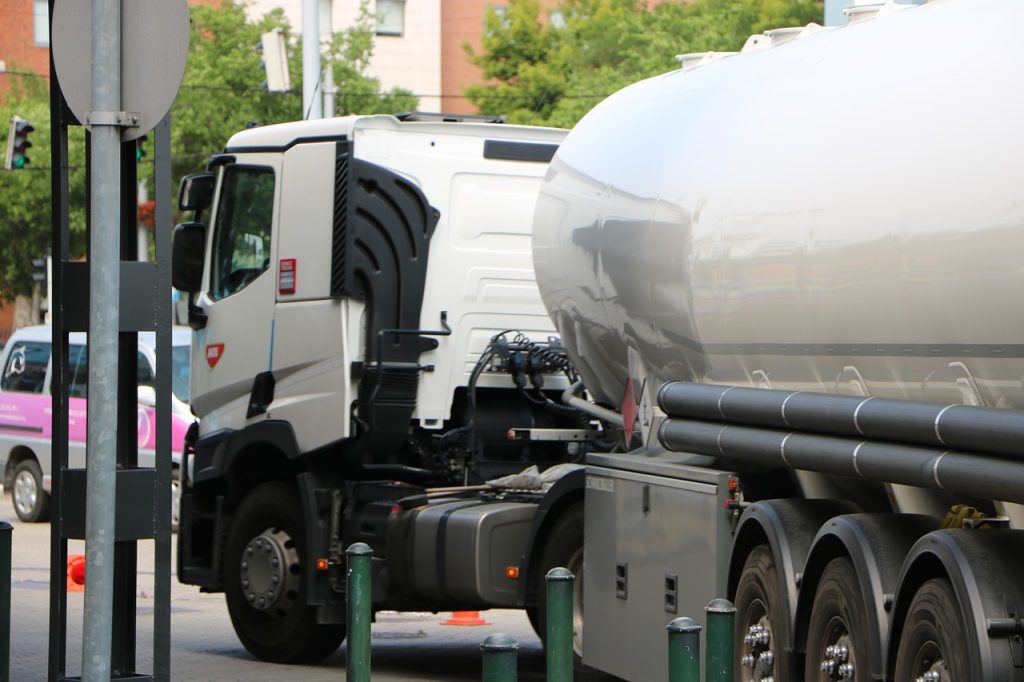The Army is preparing to step in to help ease fuel supply problems following a fourth day of panic buying causing a petrol shortage and pump closures.

Up to 150 military tanker drivers are ready to deliver to forecourts which have run out of fuel because of the surge in demand.
The lengthy queues at petrol stations came amid fears of a driver shortage hitting fuel supplies. Although there is plenty of fuel at refineries.
Transport Secretary Grant Shapps says the problem is starting to ease. Panic buying appears to be dying down and there is more availability at more filling stations of more types of fuel.
The estimated 100,000 shortfall of around 100,000 lorry drivers in the UK is causing problems for a range of industries. This includes supermarket food suppliers.
The government blames people needlessly buying fuel for the long queues at many forecourts, which led to some locations running out of fuel.
According to motoring group the RAC, the price of a litre of unleaded petrol is at an eight year high, after increasing by a penny on Friday. A small minority of retailers are hiking up prices amid the rising demand.
Meanwhile, many are calling for key workers, such as health and social care employees, to have priority access to available fuel.
“A sensible, precautionary step”
Business Secretary Kwasi Kwarteng says placing the Army on standby is a “sensible, precautionary step”. If troops are deployed, they will temporarily “provide the supply chain with additional capacity” to ease pressure caused by rising demands of fuel.
75 military drivers are on standby to start with, with another 75 to add if necessary. The military personnel need up to five days of specialised training.
Conservative MP and chairman of the transport select committee, Huw Merriman, says readying the army is a “good example” of ministers attempting to use as many options at their disposal as possible. However, he claims it is a “last resort” for use if the situation does not stabilise over the next few days.
In need of a long-term fix
Additionally, the government expect the industry to explain long term plans for fixing the ongoing issue of driver shortages. Mr Merriman says it is up to the industry to do something rather than constantly rely on the government to step in. The problems with driver numbers is something happening for years. The average age of a driver is 55, meaning many are coming up to retirement. When they leave, there are not enough replacements, as the job is not attractive enough to new employees. The profession has long hours and poor working conditions.
The industry has relied on foreign workers who are more willing to tolerate the conditions. But Brexit has affected the number of foreign drivers in the UK. More workers are now choosing to stay closer to home.
The situation will only improve if drivers are treated better.
The government is also authorising an extension to special ADR driver licences to allow people to transport goods like fuel. Licences due to expire between 27 September and 31 December will remain valid until 31 January 2022, without any extra training or exams.
Meanwhile, Labour call the latest move “an admission of failure” over the fuel crisis. They say that asking the Army for help is “a sticking plaster” that will only have a short term effect.
There is not a fuel shortage
Leading fuel companies are doing their best to reassure the public that there is no supply issue at the source. There is plenty of fuel to go around, but overbuying is causing a shortage in certain areas. BP and Shell released a joint statement saying they expect demand to return to normal levels soon as “many cars are now holding more fuel than usual”.
Doctors, nurses, care homes and prison unions call for essential workers to receive priority access to fuel. Some even urge ministers to create designated filling stations solely for the use of key workers.
People are left waiting for carers at home because workers are stuck in queues at forecourts. While some medical staff are unable to get to work as they don’t have enough fuel, and people are unable to get to their medical appointments. There are many concerns over how this is impacting on patient safety.
Fortunately, some ambulance trusts depots have their own fuel pumps, which are expected to be a priority for supplies. There are “sufficient” stocks, and plans are in place to maintain services. However, they can still get caught out, as one ambulance driver in north London recalls his search for fuel. His heart rate went through the roof as he frantically drove around with an empty tank. He visited several filling stations before finally finding fuel to fill up.
Many agree that the media are to blame for the frenzied scenes at the pumps, as it is their fault for causing panic with news stories about fuel shortages.
Thank you for reading Fuel shortage: Army on standby to ease petrol supply crisis

Looking for additional living space or somewhere quiet to work from home? Look no further – Log cabins at affordable prices.